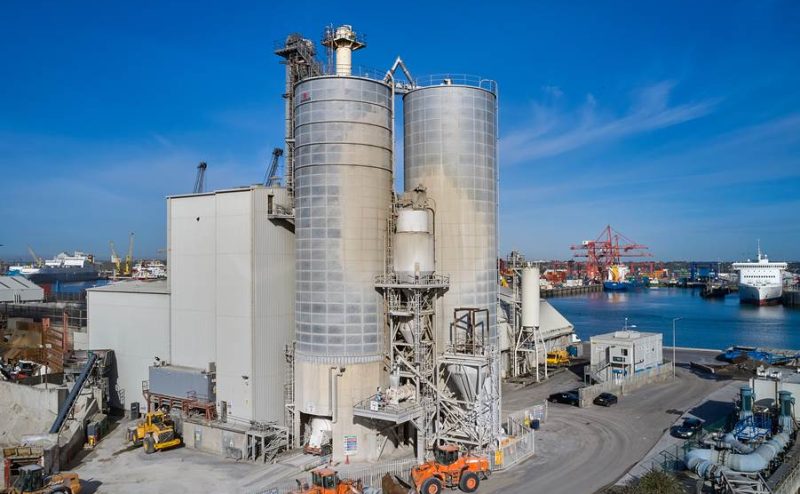
Ecocem has announced that its groundbreaking ACT technology has obtained an ETA (European Technical Assessment) from EOTA (European Organisation for Technical Assessment) for a revolutionary, new eco-efficient cement. This independent assessment is a critical step towards CE marking and will enable the introduction of this new low carbon cement throughout Europe.
The ETA provides Ecocem with a route to full commercialisation for its ACT technology by 2026 and creates the opportunity for the cement and concrete industries to do the same. There is also the potential to scale globally since ETAs are recognised and highly respected internationally.
The path is now clear for the global cement industry to become the first major industrial sector to decarbonise on a trajectory compliant with the Paris Agreement to achieve a 1.5°C trajectory, without major changes to current working practices or excessive cost.
After water concrete is the most used substance on earth. Cement, its critical ingredient is responsible for almost 8% of global CO2 emissions – more than shipping, aviation and long-haul trucking combined.
ACT technology is the culmination of a decade of research and innovation to develop scalable, sustainable, low-carbon, competitive cement technologies by Ecocem. The technology is currently undergoing rigorous trials which are already demonstrating the carbon reduction possible using ACT – in effect, a 70% reduction in CO2 compared with the average European cement blend. The trials have also demonstrated strong performance on key criteria, including strength, durability and concrete workability. Ecocem plans to supply the first ACT cement to customers in its European markets in the course of 2024, with full commercialisation by 2026.
The cement industry now enjoys a range of available low carbon technologies sufficient to reach the EU’s newly proposed target of a 90% reduction of greenhouse gas emissions by 2040. The challenge now to policy makers, investors and the industry is to accelerate the adoption of this groundbreaking technology.
These technological advances are crucial in the context of the Industrial Carbon Management Strategy published by the European Commission on the 6th of February. By adopting readily available alternatives such as ACT clinker reduction technology, the cement industry can deliver the full benefits of decarbonisation faster and at a lower cost and reduce reliance on high cost long term carbon capture solutions.
Commenting on this breakthrough, Donal O’Riain, Founder and Managing Director of Ecocem, said:
“Historically the cement industry has struggled to achieve deep decarbonisation, due to absence of low carbon technologies capable of reducing the high CO2 emissions inherent in the cement manufacturing process. ACT technology provides the cement industry with a unique opportunity to halve emissions within the decade and become the first industrial sector to achieve a 1.5C decarbonisation trajectory.
This technical assessment is a game changer for the industry. It delivers the independent technical evaluation necessary to take ACT technology to European markets, directly and via licencing, to the cement, concrete and construction industries. The industry’s carbon transition just got easier, cheaper and faster. It is no longer possible to say we lack the technology or that costs are prohibitive.
Christian Clergue, European Standards Manager at Ecocem, added: “The technology to decarbonise the cement industry in line with the Paris Agreement exists. Thanks to the ETA, we now have the assessment that proves ACT’s safety and its performance. It is no longer theoretical, but a real, existing technology that can now start having an impact.”
Ecocem is partnering with key organisations in the cement and construction industry, including Groupe CB, Point P and Cemex France, to trial and develop the technology and ensure a continuous supply of materials.
To accelerate ACT’s delivery, Ecocem is scaling up activity at established production facilities in the Netherlands, Ireland, and France, where it will build a new mill to grind limestone at its Dunkirk plant in partnership with CB Green. In the US, the company is in the later stages of permitting for the construction of a plant on the West Coast.